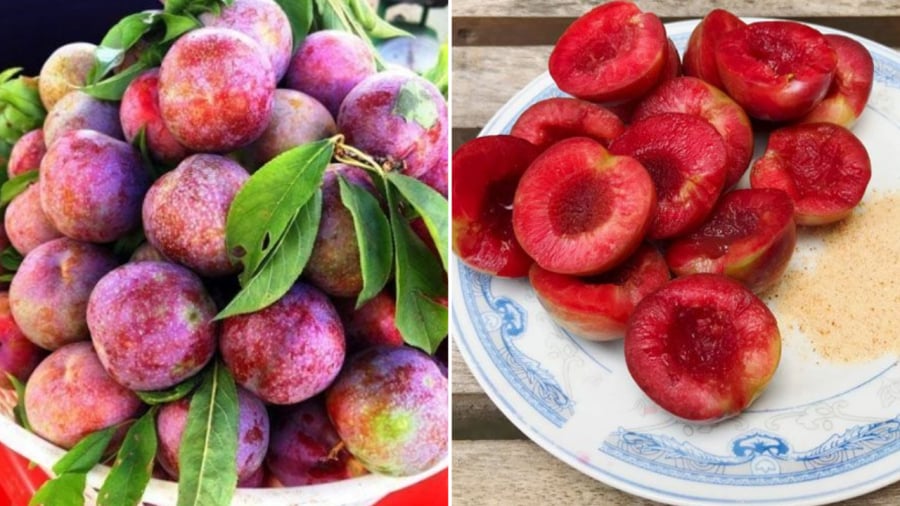Summer is the season for juicy, ripe plums. These tart and crunchy fruits captivate many palates. While plums offer abundant nutrition, they should be consumed in moderation to avoid adverse effects on your health.
Avoid Overeating Plums
The plum variety in focus here is the Northern plum, distinct from the Southern plum or ‘roi’ plum. Plum season typically spans from April to August annually, with diverse cultivars such as rice plum, honey plum, steel plum, triple-flowered plum, and tavan plum. Generally, all types of plums boast high nutritional value with minimal variation. This fruit is typically rich in fiber, vitamins A and C, and antioxidants. These nutrients aid digestion, decelerate aging, and bolster immunity.
Despite their nutritional prowess, plums should not be consumed in excess. Overeating plums often leads to internal heat, mouth ulcers, and acne breakouts. Individuals with a hot body constitution are particularly susceptible to these issues.
Additionally, excessive plum consumption may disrupt stomach functions, inducing acid reflux and intestinal irritation, especially when consumed on an empty stomach.

Overindulging in Plums May Increase the Risk of Kidney Stones
Plums contain significant levels of oxalate. When combined with calcium, oxalate forms precipitates, reducing calcium absorption in the intestines. Over time, this can result in calcium deposits in the kidneys and urinary tract, leading to stone formation.
Individuals with a history of kidney stones or a high risk of developing them should refrain from consuming excessive plums to prevent exacerbating the condition.
How Many Plums Should You Eat Daily?
Plums are delicious and nutrient-dense, offering myriad health benefits. Nevertheless, moderation is key. According to VTC News, to alleviate pressure on the digestive and renal systems while still reaping the benefits of plums, herbalist Bui Dac Sang recommends limiting consumption to 5-7 plums per day.
Additionally, individuals with stomach, liver, or kidney ailments should exercise moderation in eating plums.
Pregnant women can consume plums but should do so in moderation to prevent internal heat, mouth ulcers, and acne breakouts.
Furthermore, refrain from pairing plums with excessive salt and spicy chili peppers. While this combination may enhance flavor, it increases the risk of gastric irritation. High salt intake is also detrimental to blood pressure and cardiovascular health.
Selecting Ripe Plums and Ensuring Proper Hygiene
When purchasing plums, opt for those with a round, uniform shape, intact skin, and devoid of scratches or bruises. A white powdery coating on the surface is natural and indicates the plum’s self-preservation mechanism. Plums with a glossy skin and a thin layer of natural powder are freshly harvested.
Refrain from buying plums with signs of insect infestation, nail marks, or damage. Always wash plums thoroughly and soak them in diluted salt water for about 30 minutes before consumption to eliminate surface impurities. Rinsing plums under running water helps dislodge dirt and bacteria.
































